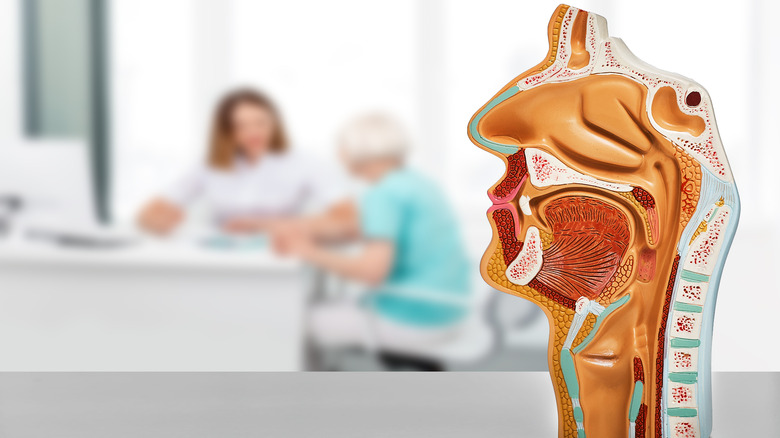The Real Reason COVID-19 Affects Your Sense Of Smell
If you have had a positive COVID test, you may have experienced several symptoms that made you feel less than your best self. In fact, some people, known as the COVID long haulers, still experience COVID-19 symptoms months after a negative COVID test. According to the Centers for Disease Control and Prevention (CDC), COVID-19 symptoms can show up two to 14 days after being exposed and can range from mild to severe. Some symptoms include sore throat, fatigue, fever, headache, diarrhea, vomiting, and loss of taste.
According to Forbes, one of the most defining symptoms of COVID-19 is anosmia, which is the loss of smell. At least half of those who test positive for COVID-19 lose their sense of smell and it returns after a few weeks. However, 12% of people report a loss of smell that lasts months after COVID-19 exposure. Now, research suggests why some might experience this.
COVID-19 can cause an abnormality in nasal passages
Initially, it was thought that COVID-19 caused damage to the olfactory nerves which led to a loss of smell, according to Healthline. However, recent research published in The Laryngoscope has given new insights as to why this can occur. After reviewing research and imaging tests of COVID-19 patients with loss of smell, researchers found that olfactory cleft abnormalities were 16 times higher. The olfactory cleft is a channel that connects the air that you breathe to the part of the brain where smells are processed.
These findings suggest that COVID-19 patients can have their sense of smell return since olfactory nerve damage is not the cause. Dr. Anjali Bharati, an ER physician at Lenox Health Greenwich Village in New York, New York said, "It's an important finding. It may mean that the symptoms are reversible as time goes on and cells turn over. It's not permanent" per Healthline." Although the findings may not account for COVID-19 long haulers who have an extended loss of smell, it has opened the door to more research regarding the effects of COVID-19 on the nasal passages.

